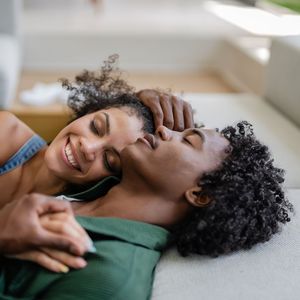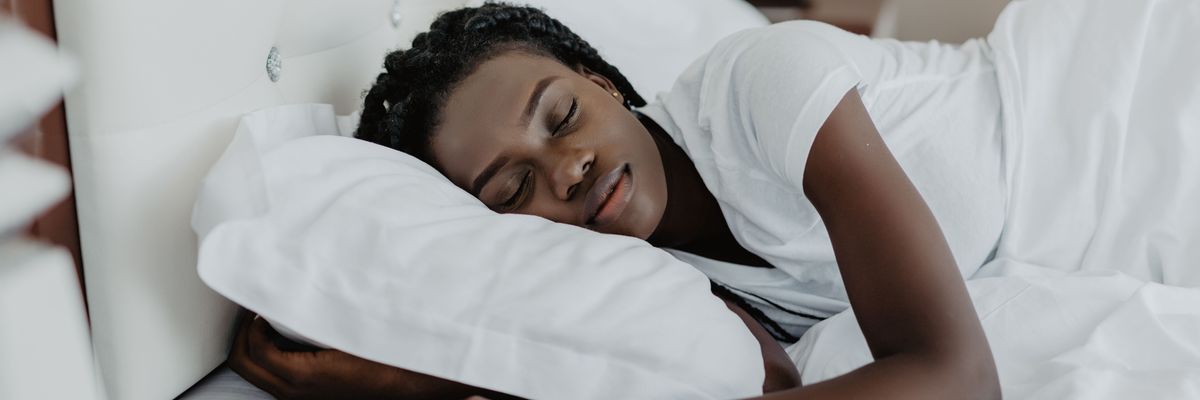Why Denver Should Be On Your Travel List: A Black Woman’s Perspective
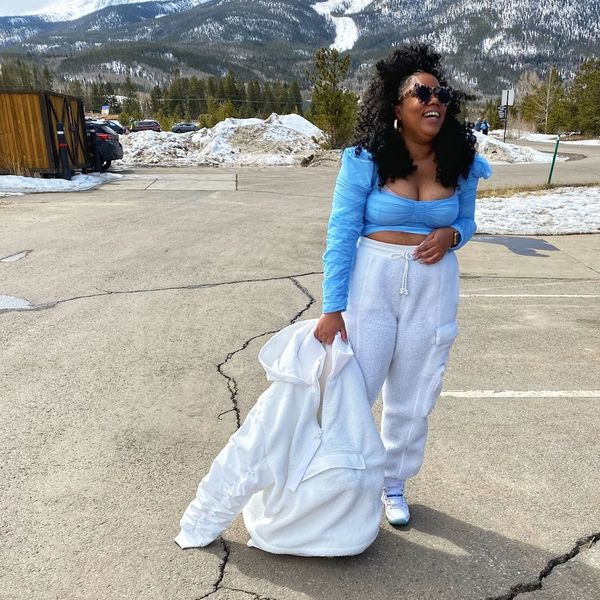
If someone had asked me if living in Denver, Colorado, for nearly seven years was on my Bingo card, I probably would have laughed in their face. But you know what they say: we make plans, and God laughs. Truth be told — moving to Denver was one of the best decisions I have ever made. I was able to find myself and my voice in a city that was somewhat foreign to me, and I am forever grateful.
Denver may not have the largest Black population, but its vibrant community offers plenty of ways to find connection, culture, and self-care. With less than 10 percent of the city's residents identifying as Black, it can sometimes feel challenging to find spaces that truly resonate. That’s why we wanted to offer a guide to help Black women navigate the city, find community, and experience everything the Mile High City has to offer.
Listen up sis, here's how you can live your best life in Denver.
Denver Travel: The City vs. The Mountains
Let’s start here because many people believe that Denver is in the mountains, and while that’s technically true, you still need to travel outside of the city to be in the mountains. Winter Park is a great place to do mountain activities and also see more Black folks. Strawberry Park Hot Springs has the most magical hot springs, as the snow-capped mountains serve as the perfect landscape.
Ski Noir 5280 is a great resource for mountain tings as they are working hard to diversify the mountains. They offer training and equipment as a means of support so that more of us take over the slopes.
Wellness and Self-Care Experiences in Denver
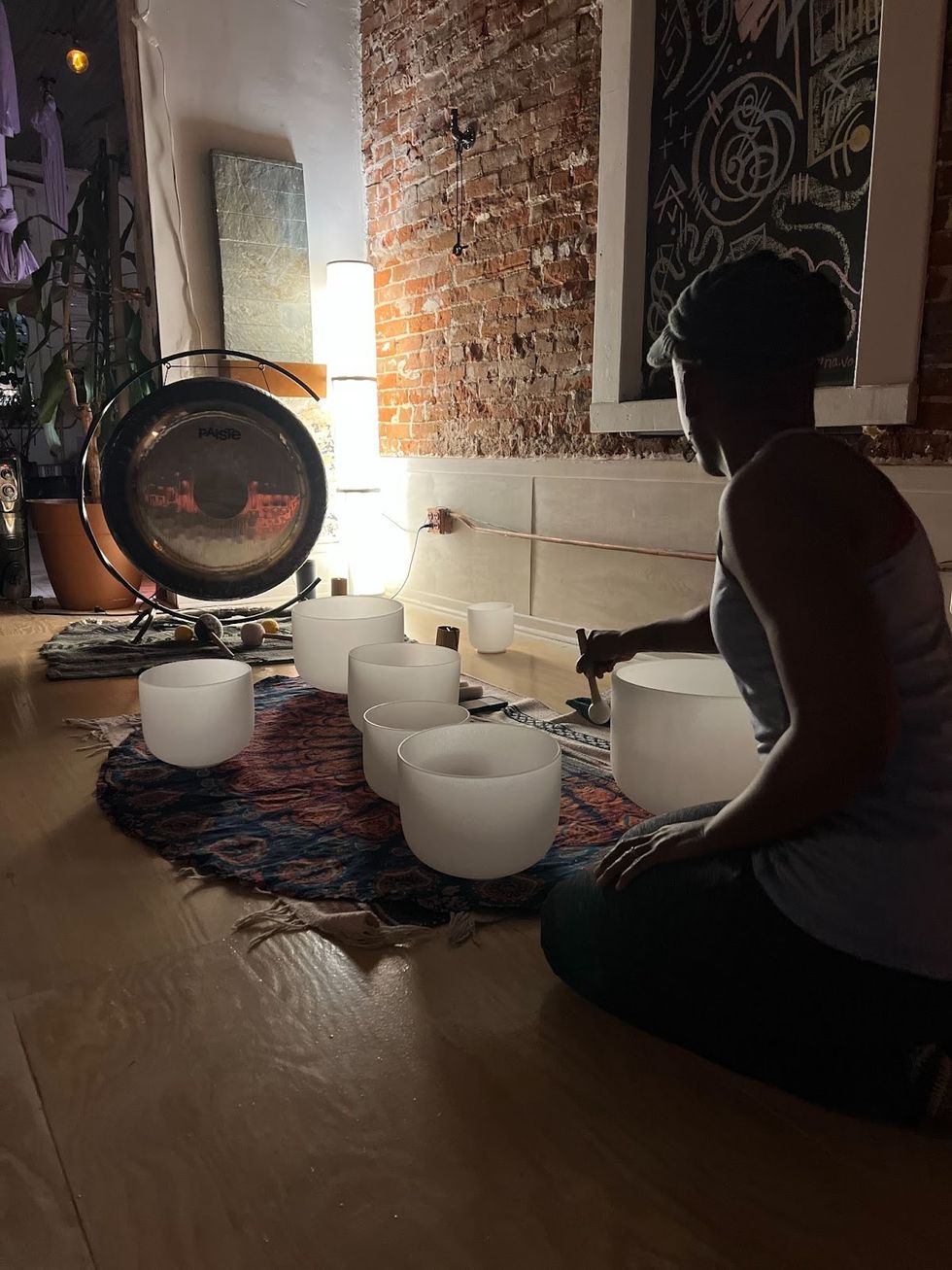
Courtesy of Joce Blake
Denver has a variety of Black-owned businesses and wellness services designed to help you prioritize self-care. BodyLove by Tal, for example, offers organic skincare products created to heal, nourish, and restore your skin naturally. If you’re looking to reconnect with nature, the Potted Peace Project promotes racial healing through plant love, offering plants and nature-centered events.
If you're more into holistic wellness, Sound Baths with Courtney offers guided meditations and sound baths that can provide much-needed relaxation and healing energy. Urban Sanctuary and Charismatic Movement Yoga also offer yoga classes to help you find balance, both physically and emotionally.
Beauty and Haircare Services in Denver
Finding a trusted haircare provider can be essential to maintaining your confidence. Denver has a variety of Black-owned beauty salons, including B&B Beauty Supply in Aurora, where you can find all your hair care needs, from extensions to braids. For specialized braiding, Tay, The Braid Bestie, is known for her work with knotless braids and feed-ins, offering services to both men and children.
If you're looking to keep your hair on point, Official Micah specializes in sew-ins, frontal wigs, and high-quality hair products, while Stylez by J’Nice at Timeless Designs in Aurora offers a range of hairstyling services, from natural hair to weaves to a buss down boho knotless style. Janice has been getting me together for years, and I adore her hands.
Looking for a MUA? Tatiana Artistry and Angela Ranae are the best to ever do it. And if you need your nails did, I only trust the Nail Transformers with my fingertips. They also offer pedicures, lash extensions, facials, and more.
Denver Cultural Activities and Nightlife
Denver offers a host of cultural events where Black women can connect and feel represented. One thing that shocked me when I first moved was that the Juneteenth Music Festival is one of the city’s major cultural events, celebrating Black heritage with music, food, and community. For a unique art experience, visit The Museum for Black Girls, which celebrates iconic moments in Black culture through its interactive selfie installations.
When it comes to nightlife, you’ll find some great spots catering to the Black community. If there’s Munchies & Mimosas happening while you’re in town, get that ticket. This event that mixes culture, cuisine, and music in one unforgettable experience. If you love a good night out, The Lobby is another must-attend spot, where you can enjoy great music, hookah, bottle service, and a lively atmosphere.
Vibes in the Park is also a wonderful space dedicated to connecting us with our roots. From park events to networking, it’s always a vibe with this gang.
If you’re into fashion, you’ll want to check out Color of Fashion. They are transforming the fashion industry by advancing inclusivity, diversity, and racial equality.
Honestly, if you’re looking for specific moves and vibes, follow the Mile High Tribe and Community Keis on Instagram — they keep you up-to-date on the Black and brown spaces and events going down.
Shopping Black-Owned in Denver
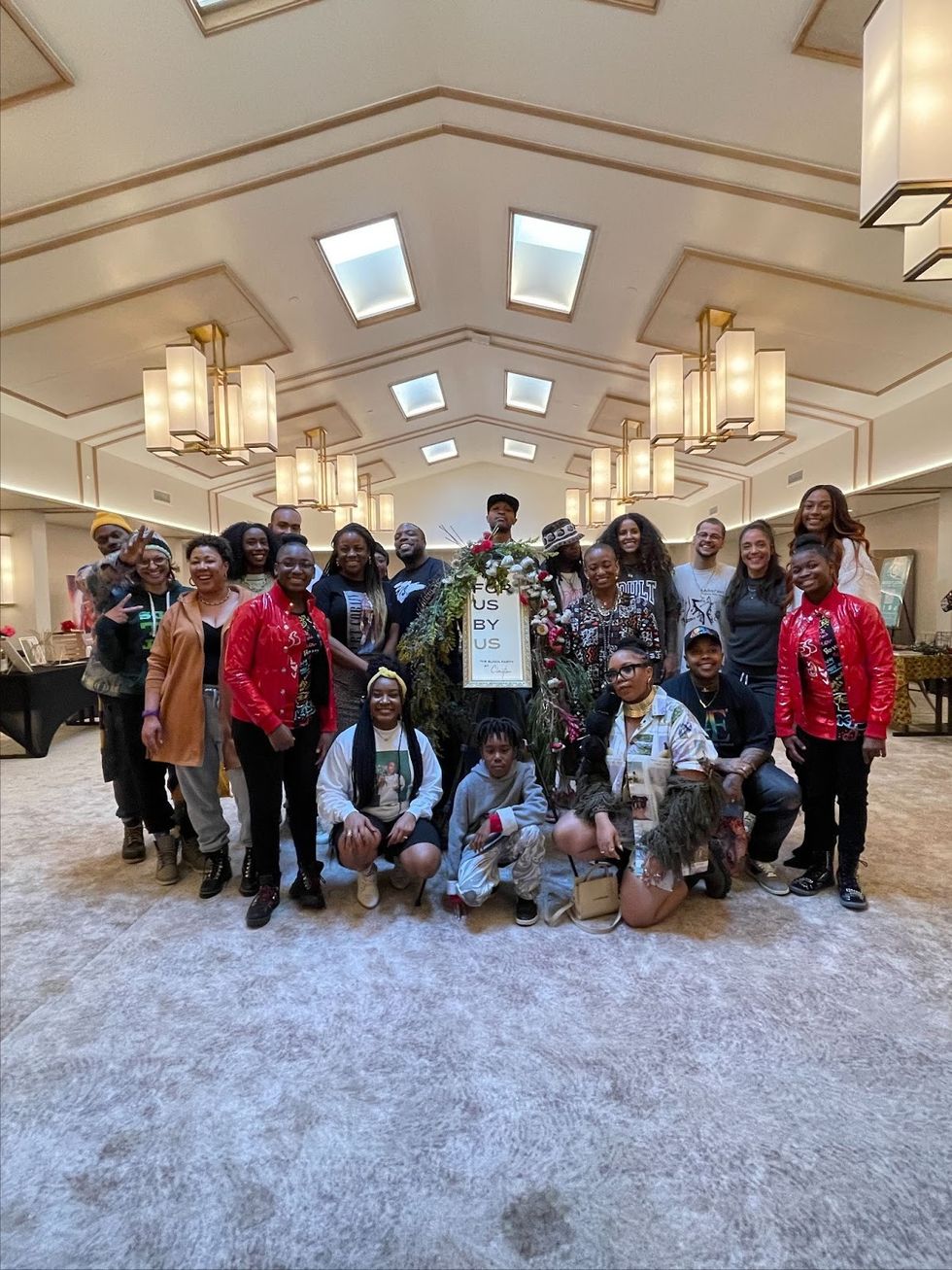
Courtesy of Joce Blake
Supporting Black-owned businesses in Denver is easy, with several options around town. Be a Good Person offers streetwear that promotes positivity, while Rachel Marie Hurst and M.Bolden Boutique provide luxury fashion, including custom handmade pieces. For high-quality, eco-friendly apparel, check out The Common Collective, a Denver-based brand committed to sustainability and social impact.
Whether you're looking for unique clothing or just want to support local Black entrepreneurs, Denver's shopping scene has something for everyone.
Green Spaces is also an amazing community hub for Black and Brown folks. From Black & Blossomed, which serves up flowers for the culture to Migas Coffee with the best matchas, it's a one-stop shop to grab some goodies and co-work.
Food for the Soul
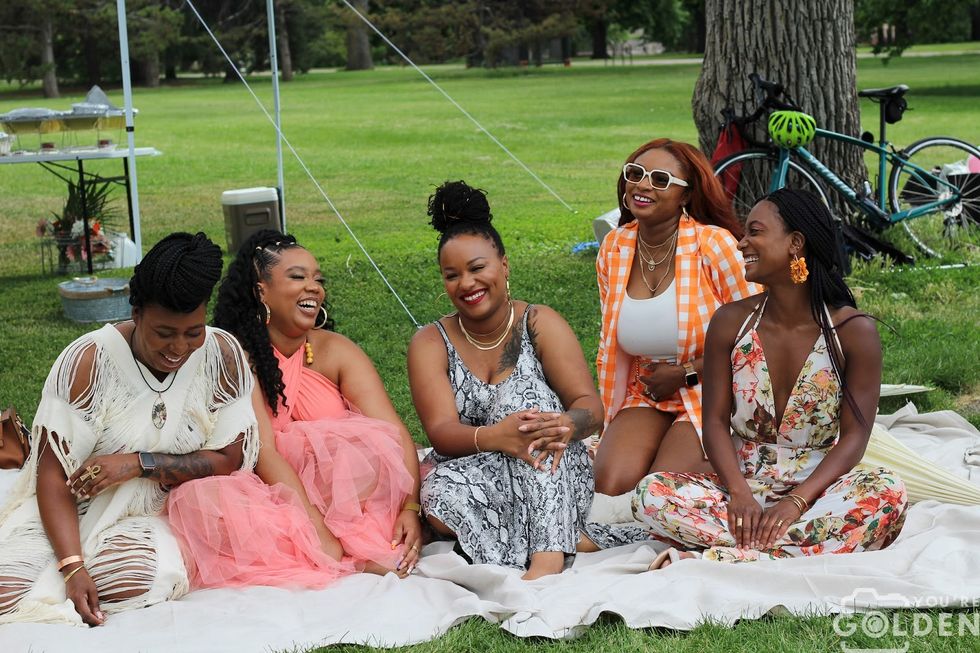
Courtesy of Joce Blake
Denver’s food scene is as diverse as its community, with several Black-owned restaurants offering soul food, BBQ, and Southern cooking. Mattie's Soul Food is a family-owned spot that brings the flavors of the South to Denver, serving everything from collard greens to chicken and dressing. Another great spot is Saucy Southern, known for its delicious southern-style BBQ wings and soulful meals.
For brunch lovers, Mimosas is a retro-inspired restaurant that serves up creative comfort food alongside its namesake beverage. If you're craving a taste of New Orleans, Nola Jane’s, and Four Friends Kitchen have you covered with gumbo, po’boys, other classic dishes, and collard greens to die for.
Living your best life as a Black woman in Denver means finding spaces that celebrate your identity, support your wellness, and connect you with the community. Whether you’re indulging in self-care at a yoga class, enjoying a soulful meal, or dancing the night away, Denver has plenty to offer.
Let’s make things inbox official! Sign up for the xoNecole newsletter for love, wellness, career, and exclusive content delivered straight to your inbox.
Featured image courtesy of Joce Blake
This Is How To Keep 'Holiday Season Stress' From Infecting Your Relationship
Hmph. Maybe it’s just me, but it seems like there is something really weird happening in the fall season air (because winter doesn’t officially begin until December 21) that cuddle season is in full swing while break-up season is as well. In fact, did you know that break-ups are so popular during the holiday season that December 11 is deemed Break-Up Day?
The reasons why relationships shift around this time vary; however, I did both roll my eyes and chuckle when I read that a very popular one is because it’s an easy way to get out of getting one’s significant other a Christmas present. SMDH.
Anyway, I personally think that the less shallow folks out here may contemplate calling things “quits” or they at least distance themselves a bit from their partner (and what I’m referring to is serious relationships) due to all of the stress and strain that oftentimes comes with the holidays whether it be financial, familial, due to their tight schedules or something else.
Listen, I would hate for you and your man to miss the fun and happiness of experiencing this time of year, all because you are so overwhelmed or irritated that you can’t really enjoy it. That’s why I have a few practical tips for how to avoid allowing the typical holiday season stress from INFECTING your relationship.
Manage Your Expectations
 Giphy
GiphyUnmanaged expectations. If there is a main reason why the holiday season tends to be so stress-filled for so many people, I’d bet good money that this is the cause. And when you’re in a long-term relationship, expectations can manifest themselves in all sorts of cryptic and/or unexpected ways. You might have relatives who assume that you are going to be with them for Thanksgiving or Christmas when you have other plans in mind. You might be thinking that you are going to spend one amount for presents while your man is thinking something totally different. When it comes to scheduling, your signals may be crossed.
And you know what? To all of these scenarios, this is where clear and consistent communication come in. Don’t assume anything. Don’t dictate anything either. From now until New Year’s, mutually decide to check in once a week, just to make sure that you are both on the same page as it relates to the holidays and what you both are thinking will come along with it. The less blindsided you both feel, the less stressed out you will be. Trust me on this.
Set (and Keep) a Budget
 Giphy
GiphyOkay, so I read that last year, 36 percent of Americans incurred some type of holiday-related debt. Hmph. Last year, there was still some sense of normalcy in this country, chile, so I can only imagine what finances are gonna look like over the next several weeks. That said, since I don’t know a lot of people who don’t find being broke stressful, make sure that you and your bae set a budget and then stick to it this year — no ifs, ands or buts.
Because really, y’all — it doesn’t make sense to deplete savings and/or max out credit cards for a few days of giggles only to be damn near losing your mind because you don’t know how to make ends meet come Dr. Martin Luther King, Jr. Day.
And by the way, this tip doesn’t just speak to things like food and gifts; I also mean travel. If it doesn’t make a ton of sense (or cents) to be all over the place this year — DON’T BE.
Keep Matthew 5:37 at the Forefront
 Giphy
GiphyIf off the top of your head, you don’t know what Matthew 5:37 says, no worries, here ya go: “But let your ‘Yes’ be ‘Yes,’ and your ‘No,’ ‘No.’ For whatever is more than these is from the evil one.” That verse right there? Oh, it’s a boundaries lifesaver! I say that because do you see “maybe” or “I’ll think about it” in there? Nope. LOL. It says that you should tell people “yes” or “no” and leave it at that — and that complements Anne Lamott’s quote, “’No’ is a complete sentence” impeccably well. Yeah, you’ve got to remember that anything beyond a yes or no to a request is privileged information; you don’t owe anyone details or an explanation.
Besides, if you are really honest with yourself, when someone asks you something and you give a “Umm, let me think about it” kind of reply, more times than not, you already know what your answer is going to be — so why not let you both off of the hook? Give your response. Commit to that. And let everyone (including yourself) get on with their lives and schedules.
I promise you that when it comes to those holiday parties, you are pissing more folks off by not RSVP’ing or doing so and not showing up than just saying, “Thank you but not this year” off the rip.
Remember That Your Personal Space Is Privilege Not a Right
 Giphy
GiphyA friend of mine recently bought a new house and invited me over to come see it. He’s a single man with no children, so as I was taking in all of the space that he had, especially as I walked through his finished basement, I joked about relatives coming to live with him. “Hell no” and “absolutely not” were pretty much his immediate responses as he went on to say that some folks even had the nerve to be offended when he told them that he had no intentions on taking DNA in.
Ain’t it wild how people think that your stuff is their right? And yes, that brings me to my next point. Your home is your sanctuary space. If you want to host folks this year — cool. If not, ALSO COOL. Please don’t let folks (family included) guilt you into how they want you to act or even into what they would do if the shoe was on the other foot. You are not them — and as one of my favorite quotes states, “If two people were exactly alike, one of them would be unnecessary.” (A man by the name Larry Dixon said that.)
Hell, my friends? They know that I am good for sending them random things that they need or even want all throughout the year. Coming over to hang out at my pace, though. Uh-uh. Chalk it up to being a card-carrying member of the ambivert club yet I like keeping my living space personal — and I sleep like a baby, each and every night, for feeling that way.
Always remember that your space, your time, your resources, your energy and shoot, yourself period (including your relationship), are all things that are your own. You get to choose how, when and why you want to share them. The holiday season is certainly no exception.
Cultivate Some “You Two Only” Traditions
 Giphy
GiphyIt’s not uncommon for some couples to hit me up after the holiday season to “detox.” Sometimes it’s due to the financial drama (and sometimes trauma) that they experienced. Sometimes it’s because they allowed their relatives (especially in-laws) to get more into their personal business than they should’ve. More than anything, though, it tends to be because they didn’t get enough quality time together and so ended up feeling “disconnected.”
Please don’t let that happen. Listen, I’m not even a holidays kind of woman and yet, I will absolutely sit myself down with some hot chocolate and chocolate chip cookies to enjoy a Hallmark holiday film or two. Aside from the fact that most of them are lighthearted and sweet, I also like that they usually focus on couples loving on each other amidst all of the holiday beauty and ambiance — which is something that all couples should set aside some time to do.
Maybe it’s a vacation. Maybe it’s a staycation. Or maybe it’s my personal favorite, A SEXCATION. Whether it’s for a few days, the weekend or even overnight — don’t you let the holidays go by without setting aside time for you and your man to celebrate one another. Don’t you dare (check out “Are You Ready To Have Some Very Merry 'Christmas Sex'?”).
GET. SOME. REST.
 Giphy
GiphyI once read that 8 out of 10 people get stressed out over the holidays and 3 out of 10 lose sleep during to it — and when you’re stress-filled and sleep-deprived, that can absolutely lead to hypersensitivity, making mountains out of molehills and even not being in the mood for sex.
Your relationship can’t afford to go through any of this, so definitely make sure to prioritize rest. I don’t care how unrealistic it might seem during this time, sleep should never be seen as a luxury; it will always and forever be a great necessity.
That said, try to get no less than six hours of shut-eye in (check out “6 Fascinating Ways Sex And Sleep Definitely Go Hand In Hand”) and even ask your bae to take a nap with you sometimes (check out “Wanna Have Some Next-Level Sex? Take A Nap, Sis.”). Not only will sleep help to restore your mind, body and spirit but, when it’s with your partner, it’s an act of intimacy that can make you both feel super connected, even in the midst of what might feel like chaos.
___
Holiday season stress is real. Still, never give it the permission or power to throw your relationship off. Put you and your man first and let the holidays be what they are gonna be, chile.
Let’s make things inbox official! Sign up for the xoNecole newsletter for love, wellness, career, and exclusive content delivered straight to your inbox.
Featured image by Shutterstock
While doing a podcast interview a couple of weeks ago, when I said my age, the interviewer complimented me by saying that what I said is not what they would’ve guessed. When they asked what the secret was, the first thing that came out of my mouth was, “Oh, I’m gonna take me a nap.”
I adore sleep. I’ve said before that it’s like what Six Flags is to some people. And really, it’s just a plus that there are so many health benefits from getting plenty of rest. Beauty-wise, science does reveal that getting no less than seven hours a night can slow down signs of aging. Know what else? There are some direct things that sleep — and the lack thereof — can do to your immunity as well.
And so, since this is the time of year when catching a cold (and/or the flu) is common, let’s talk about the impact that sleep (and again, a lack thereof) has on your immune system. That way, you can remain as healthy as possible during the fall and winter seasons.
1. Less Sleep Means More Colds
 Giphy
GiphyLike I stated in the intro, I’m pretty sure you’ve heard somewhere that the fall and winter are the seasons when people are most susceptible to catching a cold or coming down with the flu. And that’s exactly why I thought I would start this all off by sharing the fact that some studies reveal that if you get less than six hours of sleep, on a consistent basis, you end up making yourself more vulnerable to coming down with both. In fact, some research says that only 18 percent of people who get six-plus hours of rest caught a cold while almost 40 percent who got less than that did.
The logic behind it all is sleep gives your body time to build up the proteins and cells (like cytokines and T-cells) that you need to fight off certain viruses. So, if nothing bothers you more than having a stuffy nose or stubborn cough when it’s cold outside, getting more sleep is one way to prevent that from happening to you.
2. Less Sleep Means More Allergy Symptoms
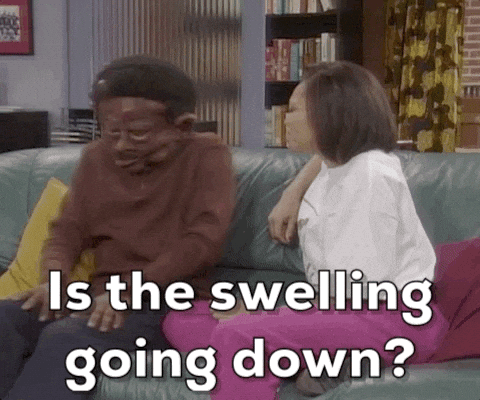 Giphy
GiphyAt the end of the day, an allergy is basically what transpires whenever your immune system “overreacts” to something that other people’s systems do not. And since sleep is what helps to keep your immune system nice and strong — well, I’m sure you get how less allergy-related symptoms and more sleep go hand in hand. Also, since sleep helps to decrease bodily inflammation (more on that in a bit) and inflammation can also intensify allergy symptoms, that’s just one more reason to get as much shut-eye as possible.
3. Less Sleep Means Potential Diabetes and Heart Disease
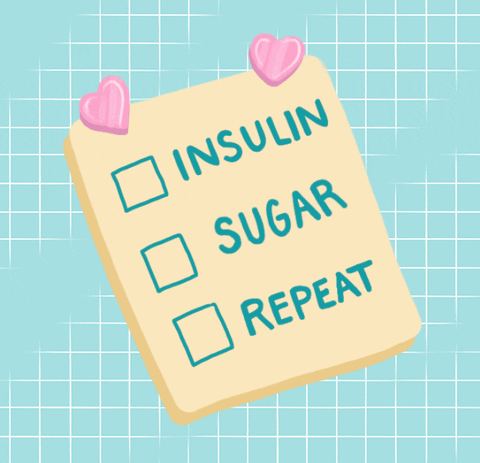 Giphy
GiphyDid you know that in 2024, Black women were diagnosed with diabetes 24 percent more than any other adult demographic. Also, it continues to be a reality that heart disease is the leading cause of death for Black women. These two sobering statistics alone should be enough of an incentive to do whatever you can to keep the risk of diabetes and heart disease way down.
One way to do that is by getting more sleep. Aside from the fact that sleep strengthens your immune system to where it is easier for you to fight off illness and diseases, sleep can keep your blood sugar levels in a healthy space; plus, when it comes to your heart, it gives it, along with your arteries and blood vessels a break.
4. Less Sleep Means Less Time for Your Body to Push “Reset”
 Giphy
GiphyIf you really stopped to consider all that your body goes through during the day (you can read some about that here), you definitely would respect it enough to do your best to thank it by giving it no less than six hours of sleep, each and every night. Sleep is what helps to slow your brain and body down so they are able to “refuel” for the next day. After all, how can your body prevent you from getting sick if your immune system is too worn out to fight ailments off? Exactly.
5. More Sleep Helps You to Fight Off Infections
 Giphy
GiphySpeaking of, in order for your body to fight off infections, there are certain cells and antibodies within you that need to be healthy and strong — one way that they get and stay that way is by you getting a good amount of sleep. For instance, remember when I touched on cytokines earlier? Well, the same way that they help to prevent colds, they also help to prevent infections too. And since sleep lowers your cortisol (stress) levels, rest gives your body the time and space to build up an army that can fight off free radicals and other health-related challenges while you are awake.
6. More Sleep Lowers Bodily Inflammation
 Giphy
GiphyWhenever a health-related issue is mentioned on this platform, inflammation is something that is mentioned quite a bit. Probably the easiest way to explain inflammation is it’s how your body responds/reacts whenever something is happening to your body that shouldn’t be, whether it’s an illness, an injury, a germ or something that you may be allergic to.
If you happen to have chronic inflammation, some symptoms that are associated with that include fatigue, stiff joints, skin rashes, weight gain and moodiness.
The interesting thing about all of this is if you aren’t getting enough rest, you could be triggering inflammation in your body. That’s because studies reveal that a lack of sleep can elevate molecules that are associated with inflammation. So, if you don’t want inflammation to increase within your system, you should definitely catch more zzz’s.
7. More Sleep Regulates Hormones
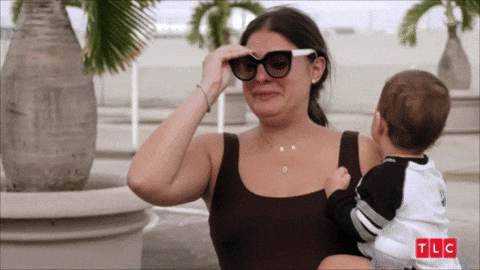 Giphy
GiphyWhen it comes to hormones like serotonin, estrogen and cortisol, believe it or not, they play a role in how your immune system acts and overreacts. That’s because, if your hormones are out of balance, that can cause your immune system to work harder than it actually should and that can make you more vulnerable to sickness. One way to keep your hormones leveled out? SLEEP.
That’s because sleep gives your body the opportunity to rest, repair and restore your hormone levels. On the other hand, when you are sleep deprived, that can put/keep your hormones on the ultimate roller coaster ride. #notgood
8. More Sleep Strengthens Vaccines
 flu shot GIF - Find & Share on GIPHYGiphy
flu shot GIF - Find & Share on GIPHYGiphyIf you’re someone who is good for getting some sort of vaccine around this time of the year, make sure that you rest up before and after getting your shots. Not only does adequate rest before a vaccination help your immune system to be better receptive to your shots but sleep also helps your body to build up enough antibodies to make your vaccinations effective after getting them. Because if you’re gonna get pricked, shouldn’t it be worth it? My thoughts exactly.
Get some freakin’ sleep! Your immune system depends on it.
Let’s make things inbox official! Sign up for the xoNecole newsletter for love, wellness, career, and exclusive content delivered straight to your inbox.
Featured image by Shutterstock


